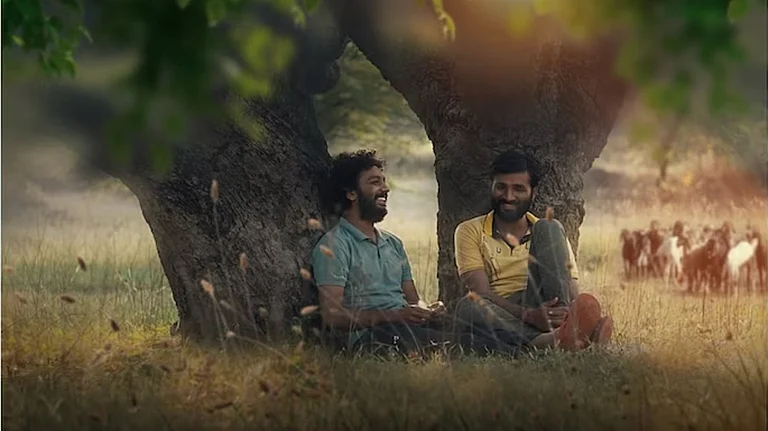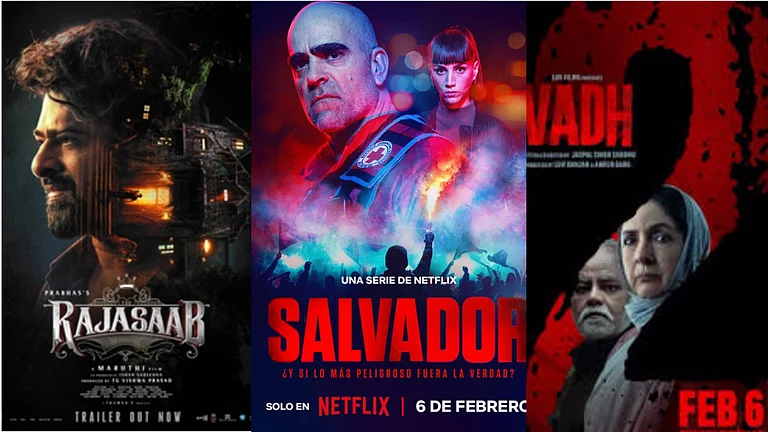When Anubhav Sinha’s IC 814: The Kandahar Hijack released three weeks ago, a chain of events followed that has become alarmingly frequent with most mainstream Indian films and shows these days. The six-part series was criticised for ‘misrepresenting facts’ by ‘erroneously naming the hijackers as Bhola and Shankar’ which had apparently ‘hurt the sentiments of the Hindu community’. A public interest litigation (PIL) was filed by Surjit Singh Yadav, chief of Hindu Sena at the Delhi High Court, seeking a ban on the show. There was a lot of social media outrage around the show, despite many responding to the allegations that the aliases of the hijackers were consistent with the press release issued by the Atal Bihari Vajpayee-led government of the time. The aliases were independently verified by writer Neelesh Misra, who had written the book 173 Hours in Captivity: The Hijacking of IC 814, based on interviews with the surviving passengers and crew. Misra was accused of colluding with and protecting his Bollywood colleagues.
The facts couldn’t douse the social media outrage (which began to seem like a premeditated, coordinated misinformation campaign after a point), and the debate pivoted to how streaming platforms like Netflix were ‘degrading Hindu culture’ with ‘obscene’ shows and films. Enough to the point that the Ministry of Information and Broadcasting (MIB) sought an explanation from Netflix India for ‘playing with the sentiments of the people of this nation’. It’s unusual that a ministry might get involved in reprimanding a streaming platform based on misinformation. Which elicits the question – was the MIB’s meeting with Netflix about IC-814 in good faith?

This is not the first time an OTT platform has witnessed such a crisis. It began with Amazon Prime Video’s Tandav (2021) – criticised for ‘hurting religious sentiments’ for showing Hindu Gods taking part in a satirical play. Multiple FIRs were filed against the makers of the show, the cast and streaming executives, resulting in the ‘offensive’ bits clipped out of the show. The Tandav fiasco presumably contributed to the enactment of the IT Rules (2021), which expanded the scope of regulation to OTT platforms under section (u/s) 66A to flag anything that might “threaten the sovereignty and integrity of the nation” or disrupt “the public order of decency and morality”. Things didn’t get as dire for the Netflix executives, who reportedly met with the MIB and assured them that their future content would be mindful about not hurting religious sentiments, and that they were willing to add a disclaimer at the beginning of the show that the aliases depicted in the series are based on public information about the incident. The PIL has since been withdrawn.
Apar Gupta, advocate and co-founder of Internet Freedom Foundation (IFF), says how even though the IT Rules vest the MIB with the purported authority to initiate a complaint against a streaming platform, the ‘meeting’ with Netflix doesn’t seem to have taken place under the legal purview. “It doesn’t appear to be a legal proceeding at all,” says Gupta, “It seems to be a case that has been called beyond the legal ambit of the ministry, to place pressure on the platform.”
After all, only a month ago, the government had tried to table the Broadcast Bill 2024, which was recalled after significant public outrage – which sought to bring the OTT and social media platforms under the purview of the MIB. It would allow them to initiate legal proceedings against any tweet, Instagram or Facebook post that might be perceived as ‘offensive’ by government agencies or anyone else. It’s probably not a coincidence then that this ruckus around Netflix has come soon after, possibly intended to have a chilling effect amongst OTT platforms and executives like it did in the aftermath of Tandav.
Journalist Aakar Patel agrees this could be an intimidation tactic by the ministry. However, he also speculates a couple of other reasons why the BJP government might have chosen to take this unusual step so publicly. “Signalling ‘strength’ to self and (its) follower(s), and protecting (their) image both defensively against accusations of softness in releasing those men and offensively as the guardian of majoritarian values.” Patel is referring to the three terrorists (Masood Azhar, Omar Saeed Sheikh and Mushtaq Ahmed Zargar) released as a part of the negotiations by the Vajpayee-led BJP government, which muddies the current government’s claims of being an establishment of ‘direct action’.

Gupta is concerned about the trend where the MIB has increasingly given indications of taking on an unofficial censorial role. According to him, the MIB’s manner of operation ‘encourages’ taking offence, and filing of criminal complaints and court cases across India. He’s perturbed by the ‘negative’ statements made by representatives of the government every few months about the ‘obscenity and vulgarity’ on OTT platforms – which, according to him, disregards the very nature of the medium. He fears such stringent interference might result in the streaming space heading in the same direction as Indian TV – perpetuating stale and regressive ideals. “This is not the job of governance; this is not a constitutional function being performed by the ministry. This is going into who is showing what in a web series, this is not its job, according to me. And if it wishes to put out accurate information about IC 814, then why not commission documentaries of its own?” About IC 814, Gupta contends this is the latest in a string of incidents where the MIB is going beyond its governance function and performing a political role.
Meanwhile, as Payal Kapadia’s All We Imagine As Light (2024) has been short-listed among contenders to be France’s Oscar entry, the film continues to await its release in India. She is still named in an FIR for participating in the FTII students’ protests that took place in 2016, around which she made a film – A Night of Knowing Nothing (2021) – that won the Best Documentary Film at the 2021 Cannes Film festival, and remains unreleased in India till date. Gupta leaves us with a few pressing questions: “Are our bureaucrats supposed to be watching Netflix? Is this a judicious use of their time and public resources? Should the ministry not be a body primarily tasked with the development and promotion of the media and entertainment sector, or (is their job to) simply act as a censorial apparatus?”





























